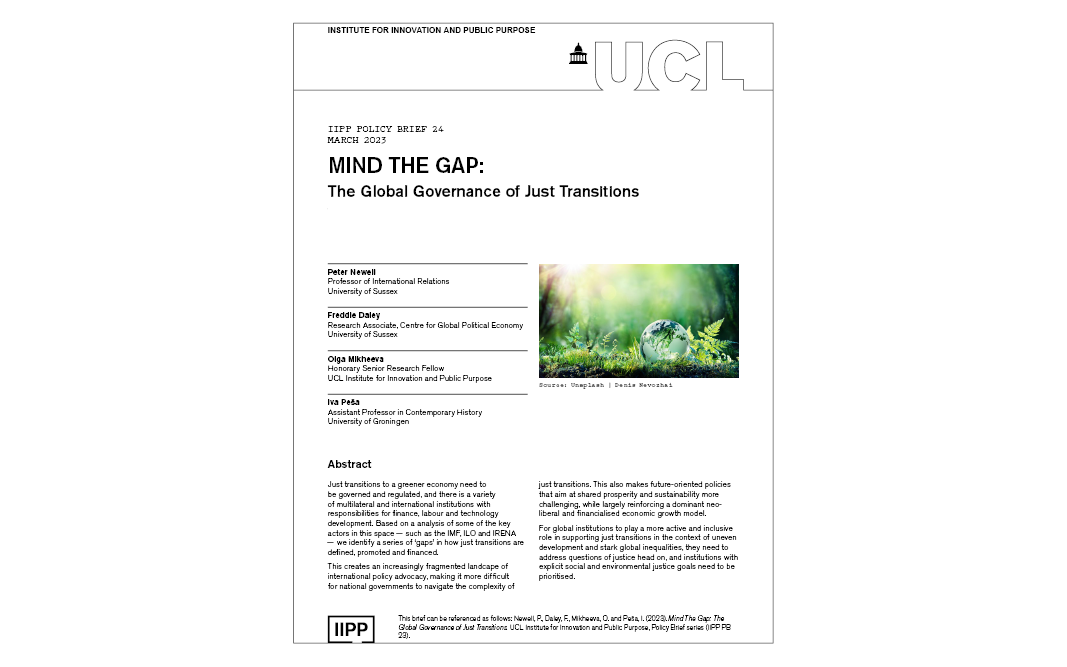Mind The Gap: The Global Governance of Just Transitions
This policy brief outlines key global governance institutions and their roles in supporting Just Transition(s) while identifying policy inconsistencies in how JTs are defined, promoted and financed.

14 March 2023
UCL Institute for Innovation and Public Purpose (IIPP) policy brief series: IIPP PB 24
Authors:
- Peter Newell | Professor of International Relations | University of Sussex
- Freddie Daley | Research Associate at the Centre for Global Political Economy | University of Sussex
- Olga Mikheeva | Honorary Senior Research Fellow | UCL Institute for Innovation and Public Purpose
- Iva Peša | Assistant Professor in Contemporary History | University of Groningen
Reference:
Newell, P., Daley, F., Mikheeva, O. and Peša, I. (2023). Mind The Gap: The Global Governance of Just Transitions. UCL Institute for Innovation and Public Purpose, Policy Brief series (IIPP PB 24).
Abstract
Just transitions to a greener economy need to be governed and regulated, and there is a variety of multilateral and international institutions with responsibilities for finance, labour and technology development. Based on a analysis of some of the key actors in this space — such as the IMF, ILO and IRENA — we identify a series of ‘gaps’ in how just transitions are defined, promoted and financed.
This creates an increasingly fragmented landcape of international policy advocacy, making it more difficult for national governments to navigate the complexity of just transitions. This also makes future-oriented policies that aim at shared prosperity and sustainability more challenging, while largely reinforcing a dominant neo-liberal and financialised economic growth model.
For global institutions to play a more active and inclusive role in supporting just transitions in the context of uneven development and stark global inequalities, they need to address questions of justice head on, and institutions with explicit social and environmental justice goals need to be prioritised.
 Close
Close

